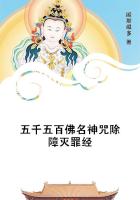First therefore for the want of Money in this Kingdome, many reasons may bee assign'd. Whereof some are Immediate, some mediate or remote. The Immediate reasons of the want of money, are either such as hinder the Importation; of such as cause the exportation thereof. And both therse are occasioned by the under-valueation of his Majesties Caoine, to that of our Neighbour Countries. For who wil procure licence in Spaine to bring Realles into England, to sell them here at ten in the hundred gaine, which is lesse then the Exchange from thence will yeeld; when hee may have for the same five and twenty in the hundred in Holland? Here five Reals of eight, which make twenty shillings sterling, will commonly yeeld two and twenty shillings or thereabouts: and the same in Holland will yeeld forty two shillings & sixe pence Flemish, which is five and twenty shillings sterling. And how can we choose but want money in England, when the Jacobus pieces, are Currant at so high a rate in Holland? For there they goe at twelve guilders eight stivers the piece, which is one and fortie shillings and four pence Flemish, which is four and twentie shillings & nine pence sterling. And after this rate His Majesties other Coines of gold & silver are there of respective value. For although by the Placcaets or Proclamations of those parts, the Jacobus pieces, and other species of gold and silver, are there set at indifferent rates answerable to their valuation here with us respectively, which they there call permissie gelt, Proclamation money: yet they have other devices to raise money, and draw it away at their pleasures. As either by their Banckes, when the Banckiers will for their occasions give a greater price for mony then the Proclamation suffereth, & then it is called Banck gelt: or else by slacke paymasters, that for their owne advantage in the raising of money, will pretend not to make present payment of their debts, unlesse you take their money at a higher rate, then either the Proclamation, or the Banck money. Which being paid and received, produceth a third kinde, which they call Currant gelt.
And so by the Connivence of the Magistrate, the same goeth from man to man, and at last becommeth currant at an excessive value.
So they have Permission or Proclamation Money, and Banck Money, and Currant Money, and all to draw dry the Currant of His Majesties Coine.
And thus the Hepatitis of this great Body of our being opened, & such profusion of the life blood let out; and the liver or fountaine obstructed, and weakened, which should succour the same; needes must this great Body languish, and at length fall into a Marasmum.
I am not ignorant that there hath beene great abuse in the culling of His Majesties Coyne, here at home, and in melting the heavy money into plate: And that there is a great superfluitie of Plate generally in private mens hands more then is necessary, and farre beyond any example of former times, which must needes also cause scarcitie of money: yet on the other side I cannot deny, but that it is better to have the same in Plate, as a treasure of the Kingdome; then turned into Coine, & so turned out of the Kingdome, by the under-value thereof.
Now the Mediat or remote reasons of the want of money in England, are either Domestique or Forreine. The Domestique are generall, or special. The general remote cause of our want of money, is the great excesse of this Kingdom, in consuming the Commodities of Forreine Countries, which prove to us discommodities, in hindering us of so much treasure, which otherwise would bee brought in, in lieu of those toyes. For now a dayes most men live above their callings, and promiscously step forth Vice versa, into one anothers Rankes. The Countrey mans Eie is upon the Citizen: the Citizen upon the Gentleman: the Gentleman upon the Nobleman. And by this meanes wee draw unto us, and consume amongst us, that great abundance of the Wines of Spaine, of France, of the Rhene, of the Levant, the Lawnes and Cambricks of Hannault and the Netherlands, the Silkes of Italie, the Sugars & Tobaco of the West Indies, the Spices of the East Indies: All which are of no necessitie unto us, & yet are bought with ready mony, which otherwise would be brought over in treasure if these were not. A Common-wealth is like unto a family, the father or master whereof ought to sell more then he buyeth according to old Catoe's counsell, Patrem familias vendacem non emacem esse oportet. Otherwise his expence being greater then his revenue, he must needs come behinde hand. Even so a Common-wealth that excessively spendeth the forreine Commodities deere, and unttereth the native fewer and cheape, shal enrich other Common-wealths, but beggar it selfe. Where on the contrary, if it vented fewer of the forreine, and more of the Native, the residue must needs returne in treasure.
The speciall remote cause of our want of money, is the great want of our East-India stocke here at home. Which is a matter of very great consequence, and causeth the body of this Common-wealth to be wounded sore, through the sides of many particular members thereof. For the stocke of the East India Company being of great value, and collected and contracted from all the other particular Trades of the Common-wealth; and a great part thereof having beene Embargued and detained now for more then five yeeres last past; and that not by a profest Enemie, against whom we might have been warn'd and arm'd, but by a friend, a neighbour, a next neighbour, one obliged to our King and Nation more then to all the Kings on earth: this losse I say, is not onley thus unkind, but is the more intollerable, in that the Common-wealth hath lost the use and employment of the Stocke it selfe, and all the encrease of Trade which the same might have produced, in the severall Trades of the Subjects, whereby abundance of treasure might have beene brought into this land in all this time.















